
Something happened to Elton John that week in the Ukraine. It was 2009, and he'd been there before, of course, with his husband, David Furnish, as part of the Elton John AIDS Foundation's efforts to raise awareness about HIV and AIDS. The Ukraine has one of the fastest rising HIV rates in Europe, and John had given a free concert for tens of thousands in Kiev's main square.
But this day they were at an orphanage near Donetsk, an industrial city in Ukraine. He performed his hit Lion King song "Circle of Life" for the kids, most of whose parents had died of AIDS complications -- some were also HIV-positive themselves. As Furnish was bouncing a toddler named Lev Ageyeva on his lap, a reporter asked John if he'd ever want to adopt a child.
His husband had long talked of adoption, but at 62, John was still traveling and performing as much as ever. Charity work took them around the globe and John loved their life. He wasn't sure he'd want it to change. But watching Furnish with Lev -- and with the recent death of his longtime keyboardist, Guy Babylon, fresh on his mind -- something changed. He changed. And he desperately wanted to give Lev a home. Sadly, their adoption attempt was denied because the country's laws essentially deemed them too old and too gay to parent the orphan.
"Both Elton and I were absolutely heartbroken that we weren't able to adopt Lev," says Furnish. However, the couple stayed in touch with Lev and continued to support him financially, and John is credited with helping the child and his grandmother move out of the city when pro-Russian thugs waged war there years later. In turn, Furnish credits Lev with being "a turning point in our lives. Lev completely captured Elton's heart and changed his mind [about parenting]. After meeting Lev, Elton agreed that we should have a child." Since then they've welcomed Zachary (now 7) and Elijah (now 4) into their lives. "Lev gave us a precious, precious gift: fatherhood," Furnish admits.

Elton John with good friend Elizabeth Taylor

(From left): David Furnish, John's husband and EJAF board chairman; John; and EJAF executive director Scott Campbell
Furnish and John are parenting by example through their work with the Elton John AIDS Foundation, which is celebrating its 25th anniversary this year. They talk with the boys about "how important it is to help people in need, and how wonderful it feels to know that you've been able to help someone live a better life."
Formed a year before the two met, EJAF soon became Furnish's calling. "EJAF is my life's work," he says. "Our careers outside of the foundation have taken us all around the world, and we've had many thrilling experiences as part of the entertainment industry. But nothing, absolutely nothing, in our professional lives compares to visiting with EJAF grantees in Africa or Ukraine or Atlanta, and seeing their work in action. Knowing you've made real, lasting, positive change in the lives of millions of people is an incredible feeling."
What their kids see, in many ways, isn't the Elton John his fans know: the now-70-year-old rock star (nee Reginald Kenneth Dwight) who after selling 300 million records worldwide has become the third most successful artist in history on the American charts (after Elvis Presley and the Beatles) thanks to his 38 gold and 31 platinum or multiplatinum albums. An unlikely rock star -- the flamboyant John was already balding and a bit husky in his 20s -- John is an incomparable musical powerhouse who has an Oscar, a Tony, and several Grammys. John was also a huge part of the summer blockbuster Kingsman: The Golden Circle, where he stole the show in every scene. It's a reminder of his continued cultural relevance and amazing work ethic. Touring nonstop since 1970, John has performed for fans in 80 different countries (including some that still criminalize homosexuality). But, after a tough year battling a bacterial infection he caught while touring South America, John is saying goodbye to his perch at Caesars Palace in Las Vegas on May 2018, after having performed more than 200 shows there.
No doubt that leaves more time for his three loves: his kids; David Furnish, his partner since 1993 (and whom he married in 2005); and the Elton John AIDS Foundation.
Today, at the helm of EJAF are founder John; chairman of the board Furnish; Scott Campbell, executive director of EJAF US, and Anne Aslett, executive director of EJAF UK,
Long before becoming a leading force in the AIDS response, EJAF started at a friend's kitchen table in Atlanta.
"I need to take you back to October 1992," John says, in telling the story of EJAF's birth. "Elizabeth Taylor asked me to join her for a benefit concert... to raise money for HIV/AIDS research. It [was] the final catalyst for one of the most important decisions I have ever made in my life: the decision to start an AIDS foundation." After all, John says, "As effective as the benefit concert was, just performing at benefit concerts felt piecemeal to me. It was 1992, and funding was badly needed to help people in the midst of the epidemic. So we thought of creating a single place where funding could be raised, compiled, and spent strategically for community groups."

John and young Ryan White
John says he also realized that "most of the money being raised" was going to research, "but so much else needed to be done, immediately." And John says, "we needed to break down the stigma and discrimination that to this very day so often stands in the way of people getting the help they need."
A few days after the concert, John says, "I called my friend John Scott and said, 'I'm starting an AIDS foundation, and I want you to run it.' Two months later, the Elton John AIDS Foundation opened its doors in John Scott's kitchen in Atlanta."
The organization began lean and efficient, because John says, "I wanted to know where the money we raised was going and how it was being spent to make sure every dollar would have the greatest possible positive impact on people's lives." Efficiency and transparency are still hallmarks of EJAF today.
Those early days were a lot like any startup, John admits. "For two years, we ran the organization from his breakfast table. Virginia Banks... became the foundation's secretary. Sarah McMullen, my publicist, worked as my PR guru and as the Foundation's fundraiser. And that was it, just the four of us and an amazing board of directors."
To this day, the U.S. arm of the foundation (there is also a U.K. branch) is run by a skeleton crew of four staff members, plus an active board of directors. "John, Virginia, and Sarah are all still serving on our board," John says, "and we all remain as committed as ever."
The Early Days
It's usually reported that a young hemophiliac, Ryan White, was the first person John knew who had died from AIDS, and that catapulted him into action. Not true.
"Ryan White wasn't the first friend I lost to AIDS, and he certainly wasn't the last," John says. "So many have been taken from me by this disease... I never want to forget them. I have a chapel in my home in Windsor, and one entire wall is full of plaques listing name after name after name of people... [who] died of AIDS."
But White's death was still an inspiration, "first, to get my own life in order and finally take the difficult but necessary steps toward sobriety -- and then to become more involved in the AIDS movement. I didn't want Ryan's extraordinary legacy to die with him. I'm alive and here today because of Ryan White. He inspired me to fix my life, to start my AIDS foundation, and he continues to inspire me each and every day."
John still has regrets. "To this day, I'm deeply ashamed that I didn't do more about AIDS back in the '80s. My friends were dying all around me, and with few exceptions, I failed to act."
Sure, he gave money and did AIDS benefits and recorded the song "That's What Friends Are For" with Gladys Knight, Stevie Wonder, and Dionne Warwick (proceeds went to amfAR), "But I was a gay man in the '80s who didn't march or give nearly the time, money, and energy I could have," John recalls. "At the time, I was too deeply consumed by my addictions and by being Elton John the performer. I was pretty much a passive bystander to this human calamity unfolding all around me. I knew [AIDS] was killing my friends. I didn't yet have the strength or sobriety to do anything about it."

John, Furnish, Aslett, and Campbell at rhe Names Project AIDS Memorial Quilt on the National Mall in Washington D.C., in 2012
Being The Change
Fast forward 25 years later, and the Elton John AIDS Foundation has raised well over $400 million and funded programs for people living with HIV that span four continents. Though it's not widely reported, John is "extremely proud," says Furnish, that EJAF is the largest funder of LGBT health programs and the largest HIV funder of transgender programs in the U.S.
"He talks about this all the time," Furnish says. "These are incredibly important distinctions for the Foundation, and they speak to our profound commitment, both personally and professionally, to ending the AIDS epidemic in the LGBT community once and for all."
Both men believe, as John says, that the "AIDS epidemic has been and still is fueled by stigma, violence, and indifference, all of which prevent people from accessing the information, prevention methods, treatment, care, and services they need. We can see the effects of this in disproportionately higher rates of HIV among black Americans, especially black gay and bisexual men."
John points to a New York Times article illustrating, he says, "the frightening statistic released last year by the U.S. Centers for Disease Control and Prevention: Unless things change, half of all black gay and bisexual men will become HIV-positive in their lifetime."
In response, his foundation is focusing on programs in the southern United States. Executive director Scott Campbell explains, "the Deep South has the most new HIV infections per capita, tremendous pockets of extreme poverty, unproductive laws that push people away from healthcare, ongoing problems with racism and homophobia, economic inequality, and bad prison healthcare policies."
During 2016, the foundation awarded 49 grants totaling $2.9 million to organizations located in and focused on the southern U.S. and Puerto Rico, along with at least $1 million of additional investments in a dozen national organizations for significant work focused in the South.

John testifies at a U.S. Senate hearing
"We're particularly proud of two important grants in North Carolina and Florida to help establish the very first legal syringe exchange programs in these states," Campbell says.
In fact, EJAF is now the single largest private source of philanthropic funding for syringe exchanges in the entire country. As a primary partner of the Syringe Access Fund, the foundation, since 2005, has invested $5.89 million in 77 organizations to provide harm reduction services to people who use drugs. In 2016, programs directly supported by EJAF reached 57,000 people who inject drugs with at least 10 million syringes and other harm reduction services.
"This is a crucial moment for syringe access in the United States," Campbell says. The number of people who get HIV through injection drug use has plummetted from 40,000 per year in the late 1980s to fewer than 4,000 people annually. But, now Campbell says, "Heroin use has more than doubled among young adults ages 18-25 in the past decade. Drug-related overdose deaths have also doubled during the past decade, with more than 60,000 Americans likely killed by drug overdose in 2016. This new generation of people who use drugs needs access to syringes and other harm reduction services."
Despite overwhelming evidence that syringe access programs protect people against HIV without increasing the use of drugs, the U.S. government won't fund needle exchanges. So EJAF does.
They have done so much, and yet John says, "We can all do more -- and especially the richest countries in the world can and should do a great deal more, not only for their own people, but for people in need in the poorest countries. Most importantly," John says, "we can simply stop stigmatizing and discriminating against people living with or perceived to be at risk for HIV/AIDS. It costs us nothing to simply love one another and tear down the barriers that keep people from seeking help."
At 70, with two small kids, an AIDS foundation, and over 4,000 performances under his belt, why isn't Sir Elton John more, well, exhausted?
"There is a kind of exhaustion that comes with extended periods of travel," he admits, "but ultimately, music energizes me. What traveling the world has really reinforced in me is the emphatic belief that the vast majority of people are good folks who care for one another. When I look out over the thousands of people that attend my concerts... I see so much diversity brought together under one roof, people who may have completely opposite points of view, but they are all here enjoying the music -- singing, dancing, being -- together. That gives me hope!"

Two iconic rock stars: Freddie Mercury and John in London, circa 1985. Mercury would die of AIDS complications six years later.
The Path Forward
John also finds hope in the new understanding that "people living with HIV who are taking effective medications that reduce their viral loads below detectable levels do not pass on the disease to others. In other words, treatment is prevention. This [is] a huge development."
He says the fact that treatment can lead to undetectable viral loads and inability to pass HIV to others should "establish a moral imperative to provide universal access to HIV testing for everyone, and to make sure all HIV-positive people have easy access to effective treatment right away, both to preserve and improve their health and to prevent further HIV transmission. The media should be holding politician's feet to the fire about this, and they aren't. Getting people tested and on treatment is quite literally the most important thing we can do right now to end the AIDS epidemic."
That doesn't mean the current political situation isn't concerning. "Any budget that cuts spending on health care and medical research... and throws 22 million people off of their health insurance are recipes for disaster," John says. "My greatest fear and sorrow is... many people won't have access to [lifesaving medicines]. It is unjust and inhumane." He says he still believes, as his 2012 book Love is the Cure posited, that while a miraculous vaccine would be nice, HIV must be cured by changing hearts and minds.
"Even if we had a cure right now, we would never be able to get it to the people who really need it unless we open our hearts and minds... [and support] sex workers, drug users, LGBT people, and prisoners," John says. "Ending AIDS is all about getting us to really understand that... we must help everyone, regardless of who they are, who they love, where they're from, or what they do."
Furnish agrees. "HIV will continue to survive and thrive as long as society continues to shun, marginalize, and abandon people who don't conform to societal norms or who do things deemed socially unacceptable. We must learn how to provide help without judging people for living their authentic lives."
Moving forward, Furnish believes that the only way "we can truly be defeated is if we give up. I know things look bleak now, but we only have to look back to the horror of the 1980s to know that things could be so much worse. We can find our way back to civil discourse and bipartisan partnerships for the greater good. Especially now when we can link our arms in solidarity with other causes. Because the Black Lives Matter movement... the LGBT rights movement... and the women's health and rights movement [are all] part of ending AIDS. Whether you realize it or not, we are all in this together."
That's a sentiment his husband echoes frequently. It gives the music man -- and the many contributors to his foundation -- hope.
"You know, scientists have shown us that birds fly faster in flocks than they can on their own," John muses, "because the flock shares the burden of wind drag, constantly shifting those in the lead, and enabling the entire group to fly faster and more efficiently. It's an excellent metaphor for why we are all stronger when we work together."


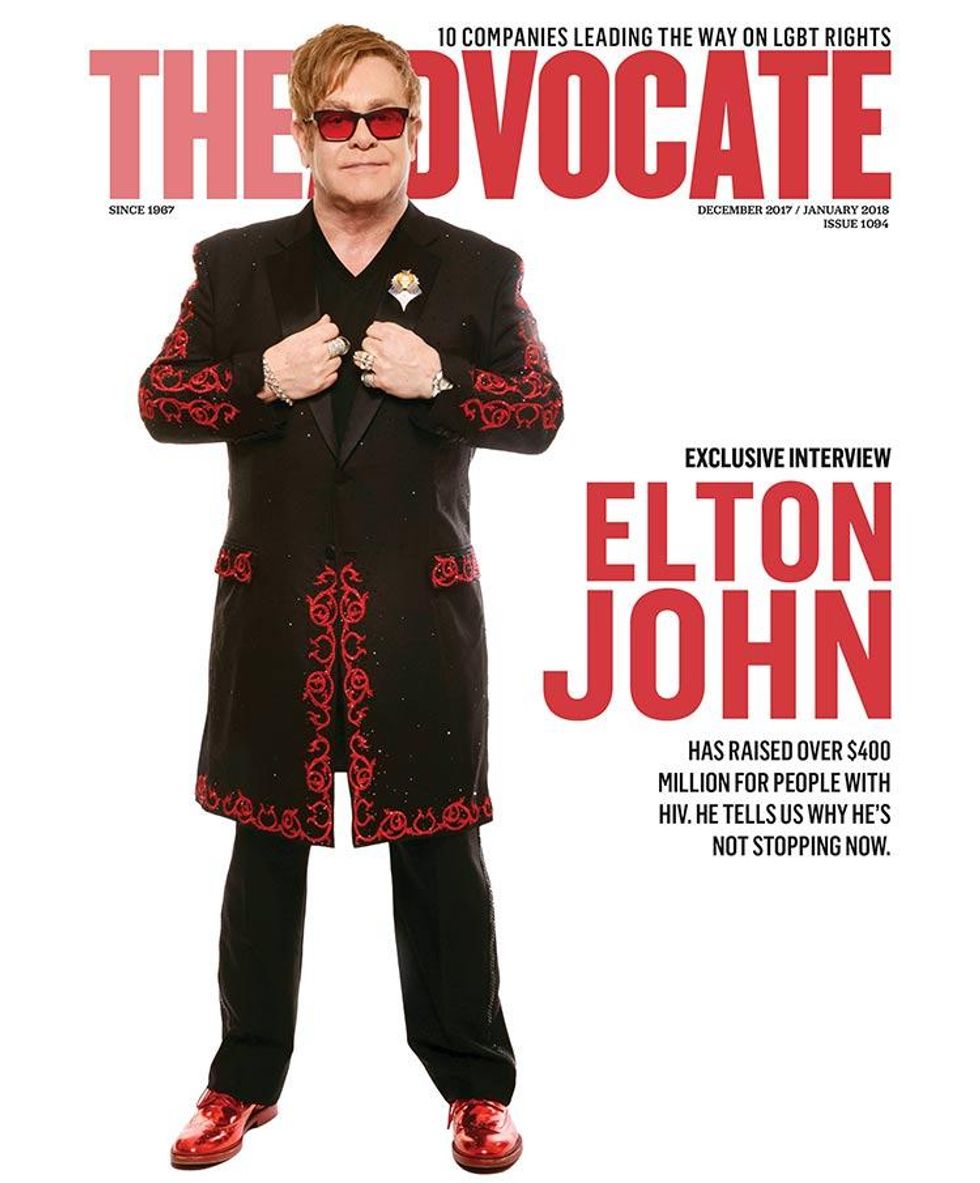
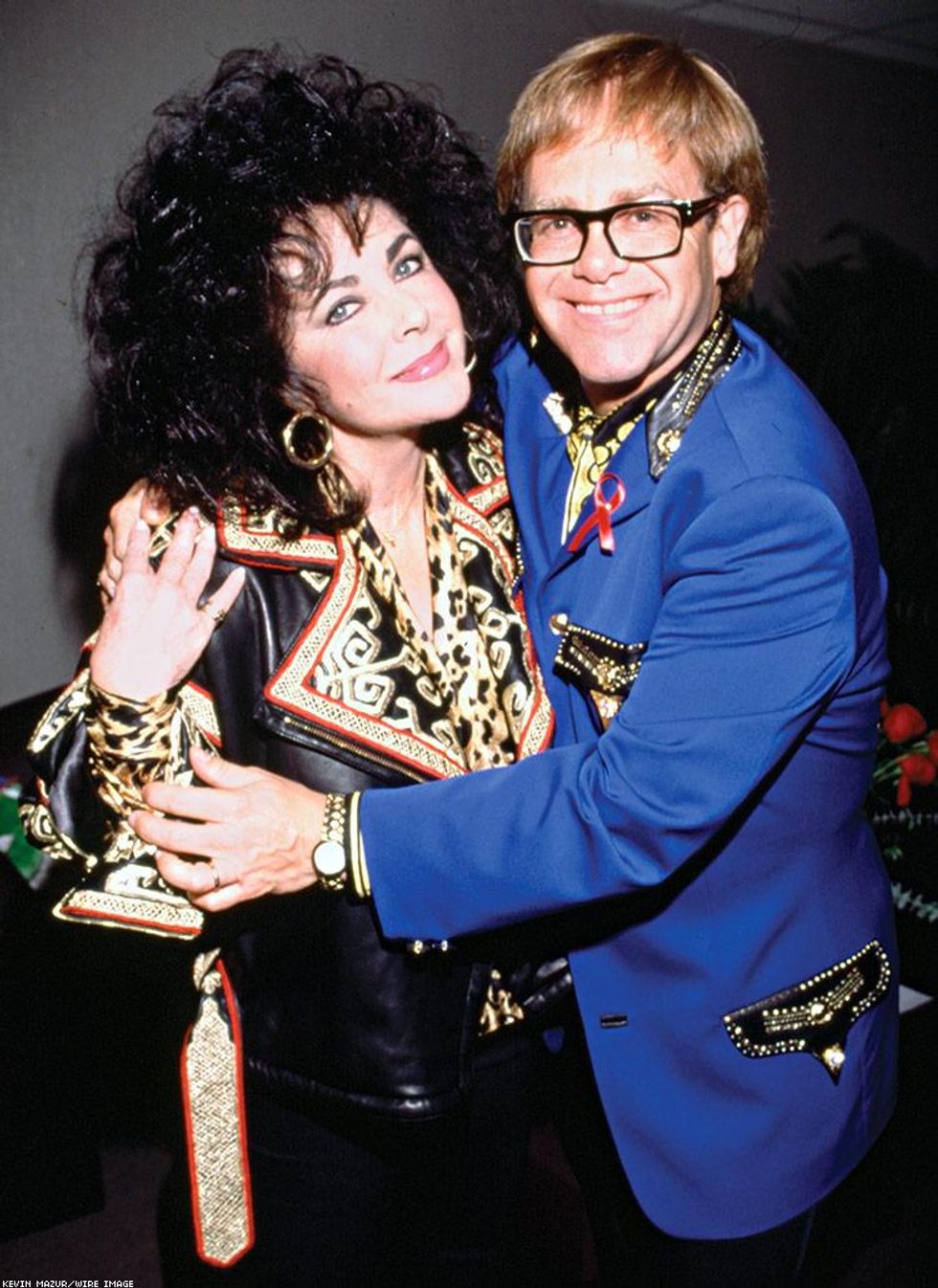
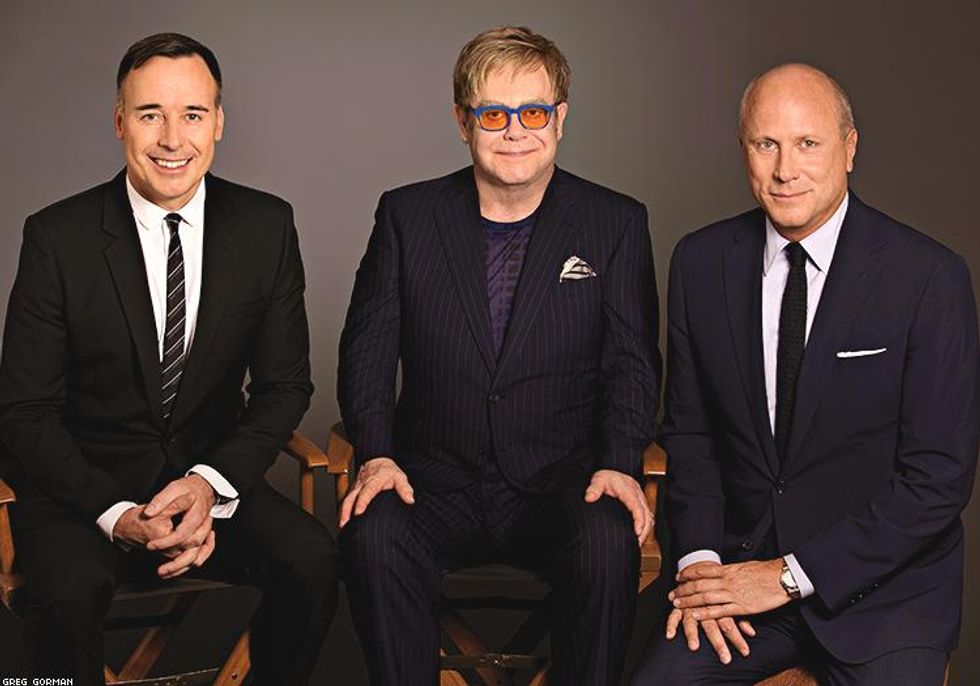
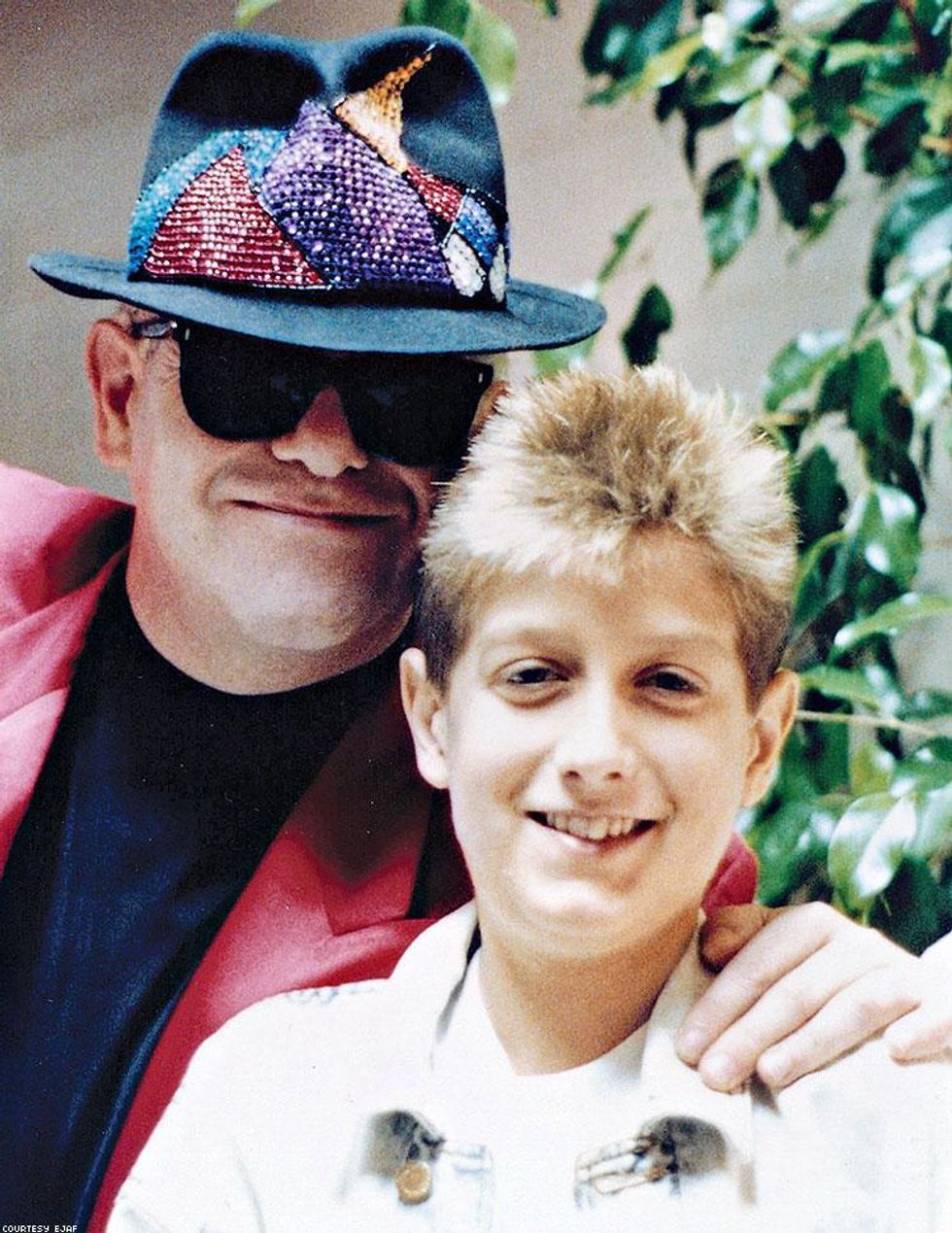
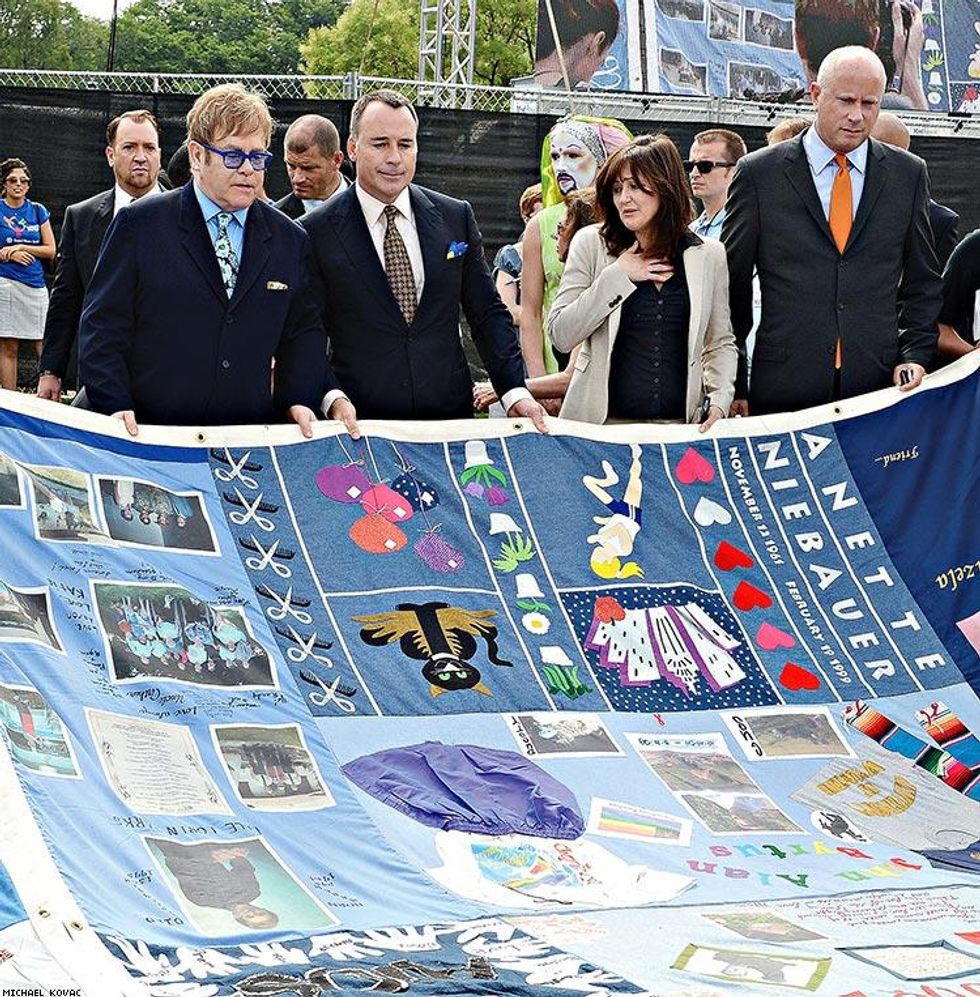
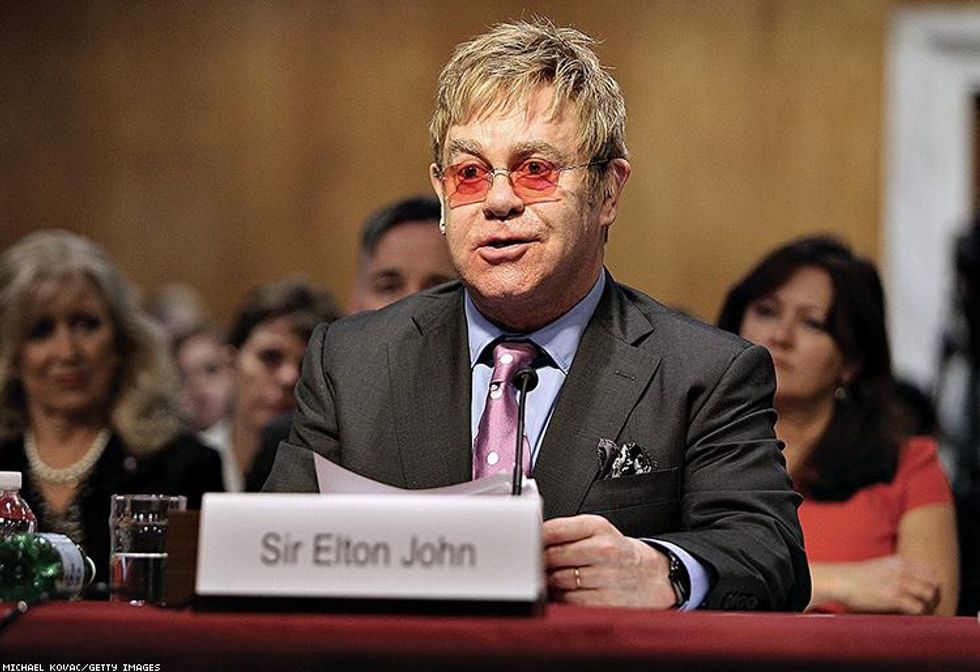
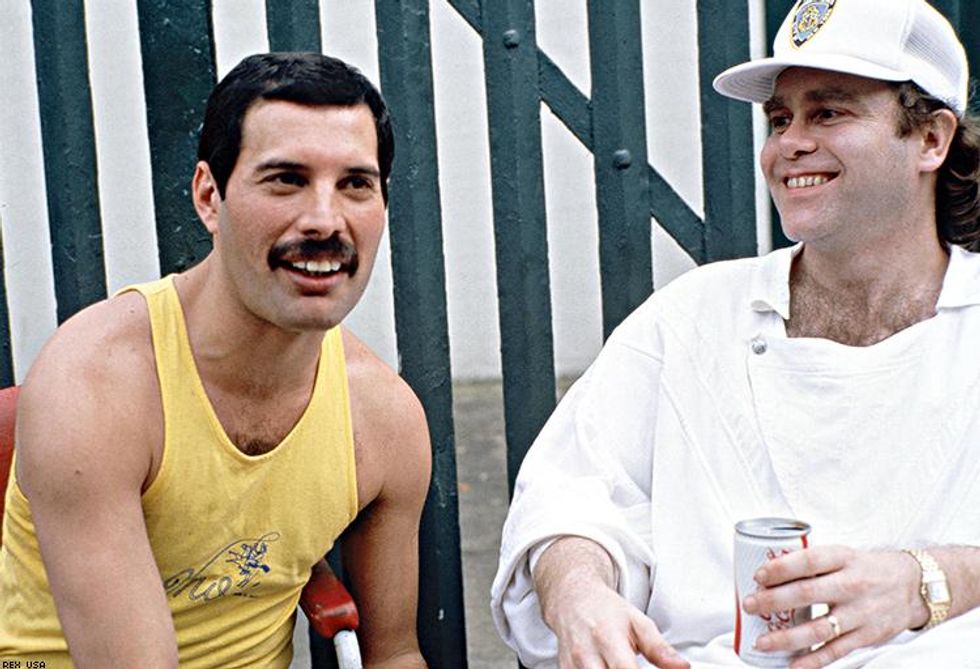




























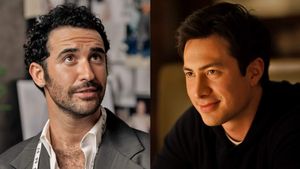









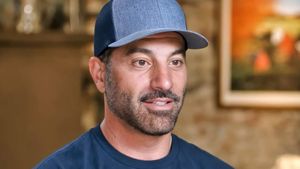






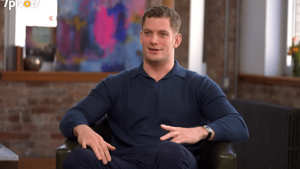





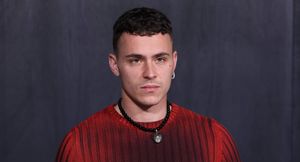






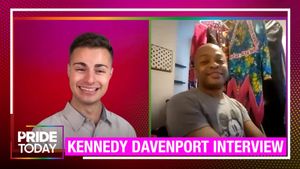





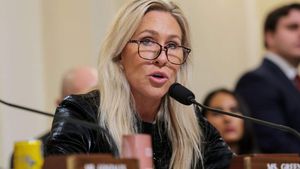


Charlie Kirk DID say stoning gay people was the 'perfect law' — and these other heinous quotes